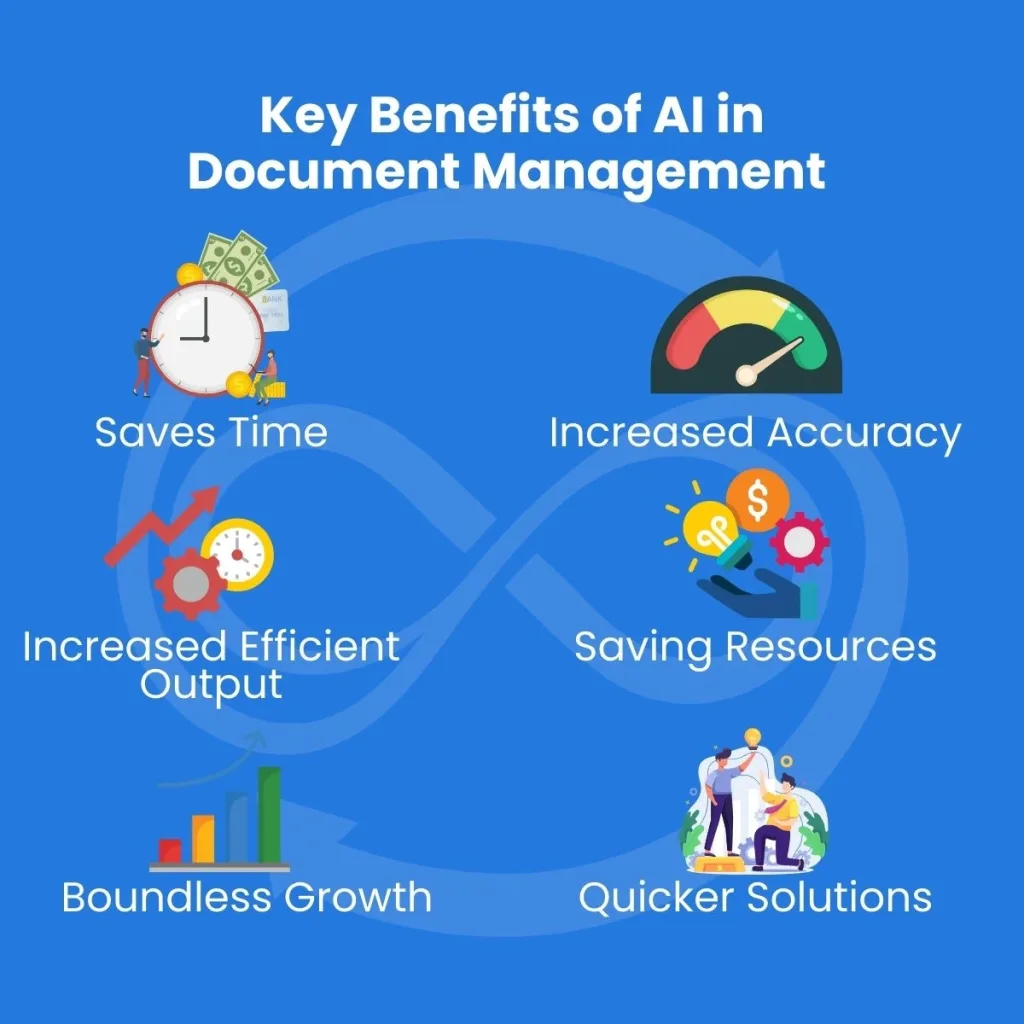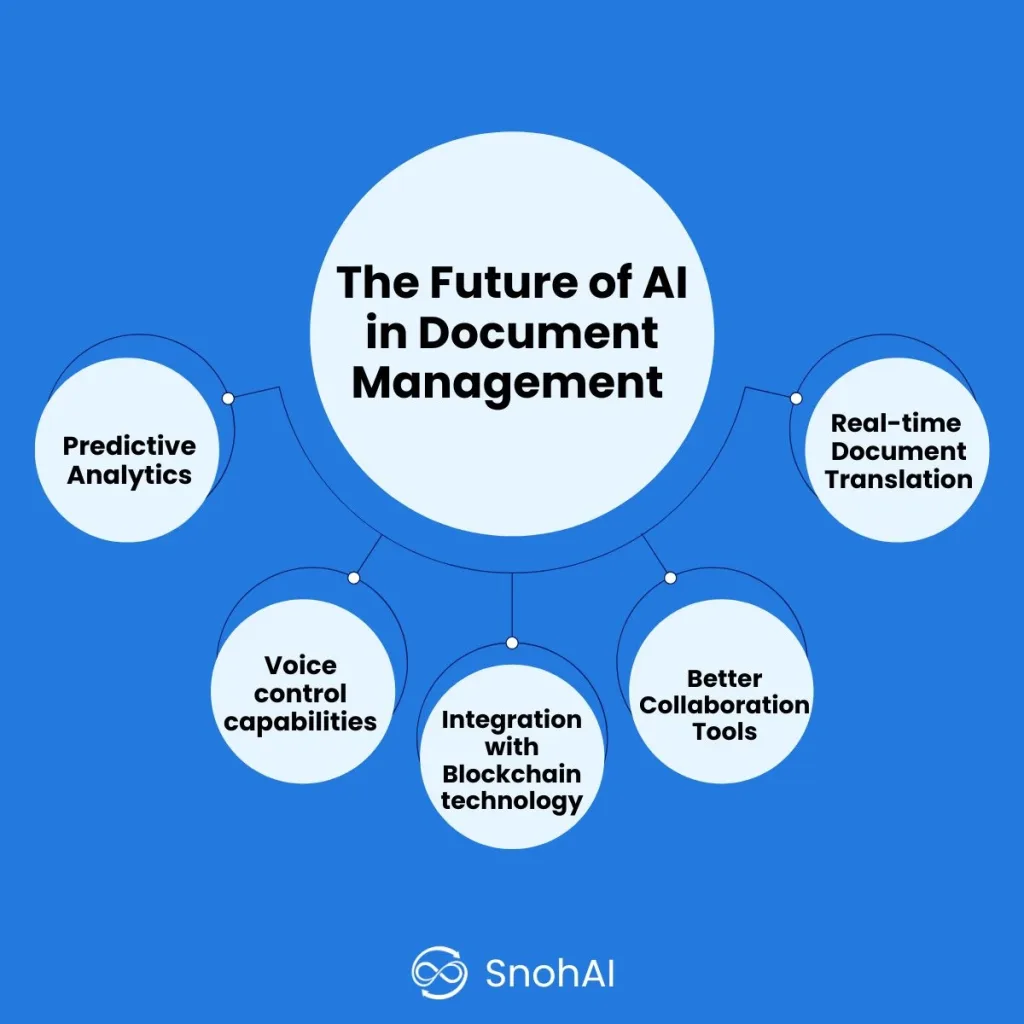Considering that data is the essence of every business these days, the management of documents has become pivotal. Today’s DMS (Document Management Systems) are no longer just a storage system for files. With the rise of AI (Artificial Intelligence), the way companies manage, access, and use documents has been radically transformed, driving efficiency, reducing costs, and ultimately improving decision-making processes. Today’s DMSs have become intelligent systems.
What is a Document Management System (DMS)?
A Document Management System is referred to as a type of software which captures, manages, and stores documents. In the past, DMS systems were solely focused on the bread and butter activities such as file storage, filing, and retrieving files. Now, advancements in AI have allowed the systems to incorporate intelligent data scraping, intelligent searching, predictive analytics, and so on – thus increasing their value tremendously.
How Artificial Intelligence Enhances Document Management Systems
Document Management Systems (DMS) have been rapidly improving in efficiency and usability with the integration of Artificial Intelligence. The following areas have greatly benefitted from AI:
- Automated Document Classification: DMS systems have AI built-in for classification purposes. These include, but are not limited to, Natural Language Processing (NLP). This means that with the help of machine learning algorithms, the system can derive tags from a document’s metadata and content. This technology assists in reducing the amount of manual labour needed, minimizes errors, and accelerates file organization.
- OCR (Optical Character Recognition): AI Optical Character Recognition (OCR) captures text from scanned images, PDFs, and handwritten document images. Moreover, AI systems have made the process of converting physical paperwork into digital copies that are easy to edit and search more efficient.
- Intelligent search and retrieval: Systems powered by AI perform more than just keyword searching. An advanced system utilizes NLP and search algorithms that comprehend the meaning behind a word search. This context-based algorithm brings intelligent search results, allowing users to effectively retrieve relevant information from a large archive of documents.
- Data extraction and convulsing: AI models can be trained to extract specific information from an invoice, contract, or application form. For example, an intelligent document management system will extract the name, date, and amount on invoices, which removes the substantial manual work involved in invoice processing and compliance audits.
- Automated workflows: DMS systems can automate the manual repetitive lifting such as approving documents and sending notifications concerning routing workflows with the help of AI technology.
- Compliance and risk management: AI tools capture documents that are suspected to elicit regulatory scrutiny for assessment and purge them from the documentation using established rules, sensitivities, and risks. A prime example would be in healthcare, finance, legal and any other context-sensitive industries.
Key Benefits of AI in Document Management

The incorporation of artificial intelligence into document management systems brings about various advantages for businesses:
- Saves Time: AI facilitates task automation which includes document classification, data extraction, and searching which helps employees devote less time towards documents.
- Increased Accuracy: AI technology works to drastically reduce errors made by humans while managing documents which increases accuracy and reduces mismanaged data.
- Increased Efficient Output: Applying automation on one-dimensional tasks provides employees more time to compete towards higher value work which improves output efficiency.
- Saving Resources: You will spend less money because automating document management tasks means there is less room for human error.
- Boundless Growth: These tools can be used in any type of business regardless of size because AI systems can handle large amounts of information.
- Quicker Solutions: AI-powered systems help businesses better understand the data so that managers can make fast and accurate decisions.
Challenges in Implementing AI-Driven Document Management Systems
We cannot ignore the challenges that come with these advantages of AI in Document Management:
- Data Privacy and Security: AI systems handle sensitive information that may lead to a data breach further granting unwanted access. Thus, secure measures must be put in place for effective treatment.
- Integration with Legacy Systems: Several businesses still function using legacy systems that are incapable of fully utilizing AI solutions. Hence, upgrading will complicate things.
- Initial Investment: The setup of AI-powered DMS is costly and might not be suitable for all types of businesses, especially small and medium ones.
- Training and Change Management: AI technologies are facilitated with various features to enhance productivity but employees will need proper training as the hesitancy or lack of interest from staff will further complicate the change process.
The Future of AI in Document Management

Without a doubt, the future remains incredibly bright for AI in document management. Below let’s check some of them out:
- Predictive Analytics: AI will integrate into the DMS and predict the next trends based on/patterns picked from what has been recorded before. This will allow businesses to preempt actions.
- Voice control capabilities: The incorporation of voice assistants such as Alexa or Google Assistant into DMS will permit users to access documents and operate them through voice commands.
- Integration with Blockchain technology: Data will be more secure by combining AI with blockchain, ensuring transparency and secure records that cannot be altered.
- Better Collaboration Tools: Using AI to develop better systems will introduce advanced collaboration features that allow teams to share and edit documents effortlessly.
- Real-time Document Translation: AI will enable powerful global companies with those documents that may be rendered in different languages to be broken down in real time.
Conclusion
AI also called Artificial Intelligence is the key component which has transformed traditional document management systems into intelligent platforms. These intelligent systems provide unrivalled speed and accuracy. AI-based DMS systems are essential for modern organizations as they cover everything from automatic classification and intelligent searching to compliance and even managing risks.
Nonetheless, realizing the full potential of AI-powered solutions comes with its own set of challenges such as data security, first-time costs, and integration. With the rapid evolution of technology that is changing document management as we know it, the industry outlook is positive, especially with AI steering the boat.


Pingback: The Power of Generative AI for Businesses: Use Cases That Work - SnohAI
Pingback: The Future of Machine Learning in Business Automation - SnohAI